It Just Gets Darker Somehow
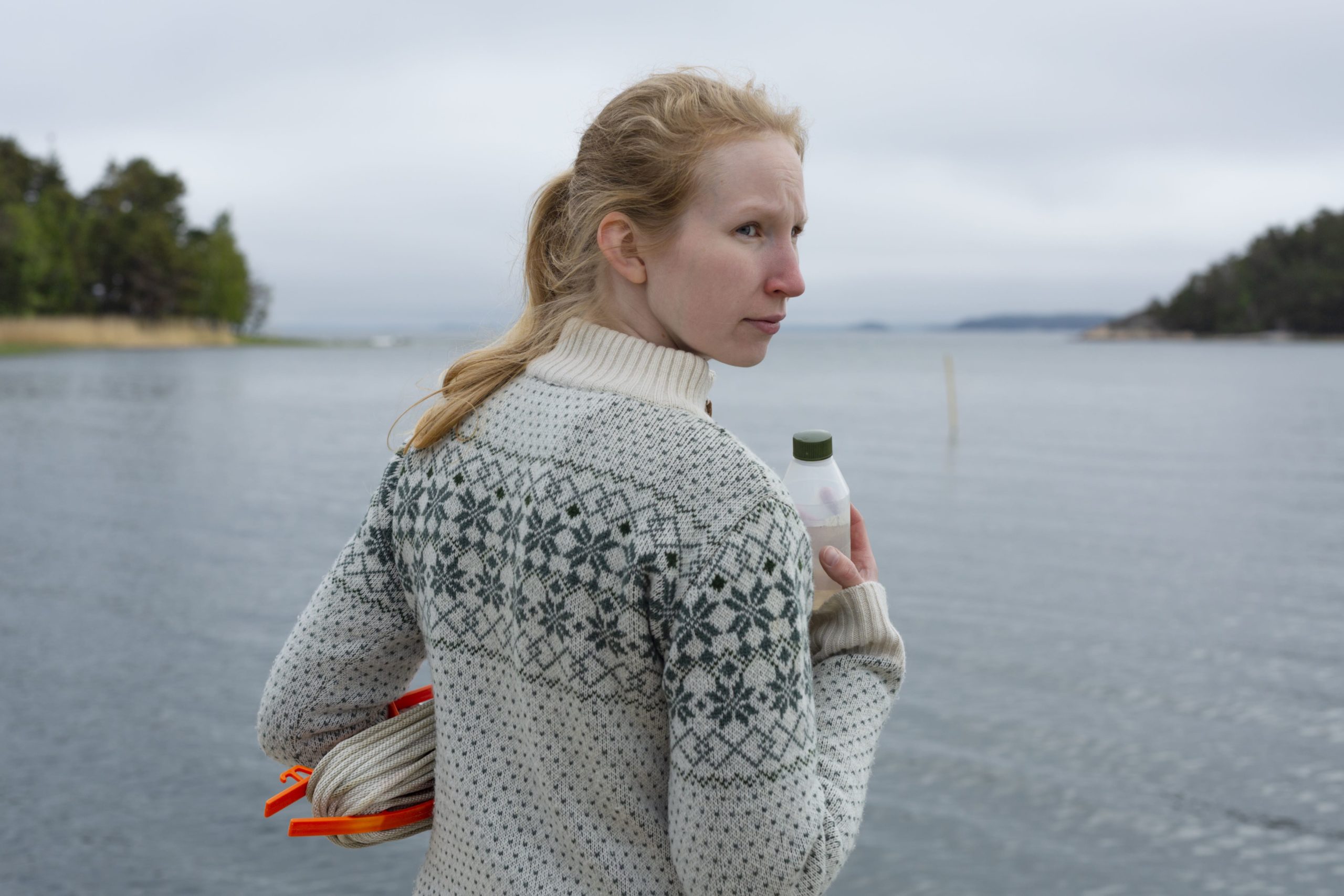
By Marta Bałaga
As the coronavirus scare reaches new heights, everyone needs to adapt – film festivals too. Be it by cancelling or postponing their upcoming editions, or sometimes, as in the case of CPH:DOX, by going digital, baby. Understandably “aiming for a solution that could honour the many hours of preparation that have gone into this event from all parties already.”
This year, these “parties” also include filmmakers behind such new Finnish titles as Tiina Madisson’s The Beloved Daughter and Själö – Island of Souls, directed by Lotta Petronella – both still set to compete for the Nordic:Dox Award. As well as The Last of the Seagulls by Tonislav Hristov, to be presented at the virtual equivalent of the CPH:FORUM, Pilvi Takala’s short If Your Heart Wants It (Remix), selected to the New:Vision competition, which saw her set up a fake company in order to infiltrate an event for venture capitalists, and CPH:WIP’s project The Red Ring by Joonas Berghäll – not available for interview at this time – in which he is set to explore the worldwide debate around Lyme disease, an illness he suffers from too, and which might just become the next epidemic.
“Things need to change, and so do film festivals. Now this change comes in a destructive wave, but you can still gather people – just in a different way” – says Lotta Petronella, when we talk about current crisis. Via skype, predictably, as calls for social distancing also influence interviews nowadays. “It is all very absurd and our everyday reality is just changing drastically. Although in Finland, we always keep our distance anyway.”
Keep Them Detained
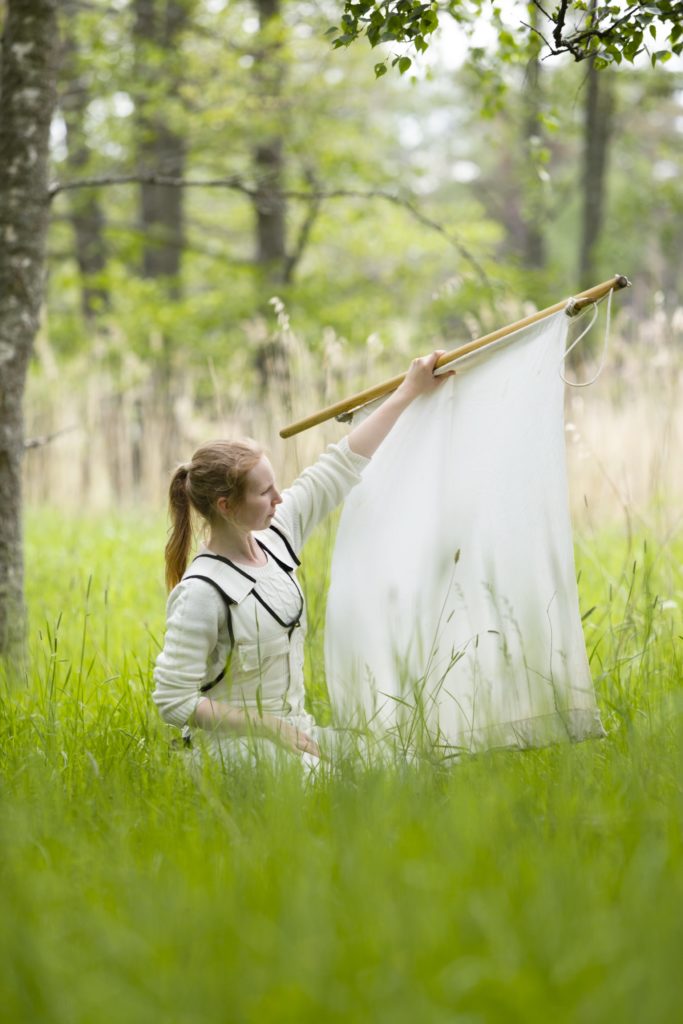 There is no denying that all these issues make her upcoming film, Själö – Island of Souls, feel incredibly timely. The film is set on a – very isolated – island in the Baltic Sea, one that served as a “home” to women considered as social outcasts and placed in a closed institution, usually against their will. Now, it’s a research centre.
There is no denying that all these issues make her upcoming film, Själö – Island of Souls, feel incredibly timely. The film is set on a – very isolated – island in the Baltic Sea, one that served as a “home” to women considered as social outcasts and placed in a closed institution, usually against their will. Now, it’s a research centre.
“I already knew a bit about the island when I was younger. My friend was born nearby, and she told me that she remembers seeing these women as a child, escaping through the ice” – explains the director, who teamed up with Ulla Simonen and Ilona Tolmunen of Made to make the film.
“It really came about because of the scientists. I knew one doctor involved in some research concerning ticks, and he kept saying to me: ‘Why don’t you come and visit.’ I thought it was ridiculous – science was never my field. But after learning more about this strange insect that’s causing so much havoc, spreading bacteria and viruses, I thought it was interesting. I am an artist, so I knew I am not just going there to ask questions – I will do my own study. This island served as a quarantine facility for people seen as dangerous, first for lepers and then for the mentally ill. It wasn’t really a treatment centre – it was more about keeping them detained. When I started, I would often hear: ‘This is too complex, this isn’t relevant.’ But now, it’s all about the treatment of those who were deemed ‘unworthy’, which is also what is happening with coronavirus now, at least based on what I have read. With people deciding who can, and who can’t be saved.”
Or what constitutes a “normal” woman.
“At that time, women didn’t have the right to decide for themselves. This island was the place where it was either the father or the husband sending you there. But there is more to human beings than this so-called ‘madness’, we are much more complex. All the information about them, all that’s left is ‘official’ – signed by their doctors, authorities or other people who observed them. So who is telling these stories, I thought? And should I trust them at all?”
But such uncertainty made Petronella much more willing to consider other solutions for the film – other than the “talking heads” approach, that is.
“My background is in art, but then I did a couple of straightforward documentaries. I was a bit unsure as a filmmaker” – she admits. “Now, I want to talk when I actually have something to say. I know my film won’t be for everyone and some will walk out, unable to handle its pace. But if you don’t, who knows? You might actually experience something deep. I am not a journalist, not an academic, so I had to understand what I could actually tell here.”
“When someone is mentally ill, we see it as a weakness. We all know these ‘stories of madness’ and I myself have experienced one in the past. But later, when I went through my own records, I realised: ‘This is not me.’ I am not saying I wasn’t unwell, but it was just one part of my story. It was the same for these women. Even now, if I would try to speak up, the words of my doctors or the authorities would be considered more worthy. That’s something that’s very pervasive in our society: when someone is vulnerable, others will always try to take control of the narrative.”
And yet, despite all the darkness, Petronella isn’t exactly blind to the light in her film.
“This place is strange, but also because it’s so beautiful. It keeps luring you in. You know that something bad has happened there but you can’t see it with all this nature, this light. Even in Chernobyl, you had butterflies and flowers that started to grow quite quickly” – she wonders.
“There isn’t anything there that really points to this past, maybe apart from this huge, old hospital that is now a research centre. I wanted the viewer to experience this place the way I experienced it, and it certainly wasn’t straightforward. So instead of saying ‘this is the story’ I just wanted to reflect on who we are, as human beings. These scientists were gathering their data on the island and I was observing them, hopefully creating an experience that could be compared to a dream.” A dream, then. Not a nightmare.
“I tried to go through the archives to see if someone has ever escaped this place. We need these stories, we need fiction – we need this escape through the ice my friend told me about to be possible, at least in our imagination. I liked that it was like a riddle. I knew it wasn’t something I could possibly solve, but the truth is there – we just don’t have the documents to prove it.”
Starting Point for Something New
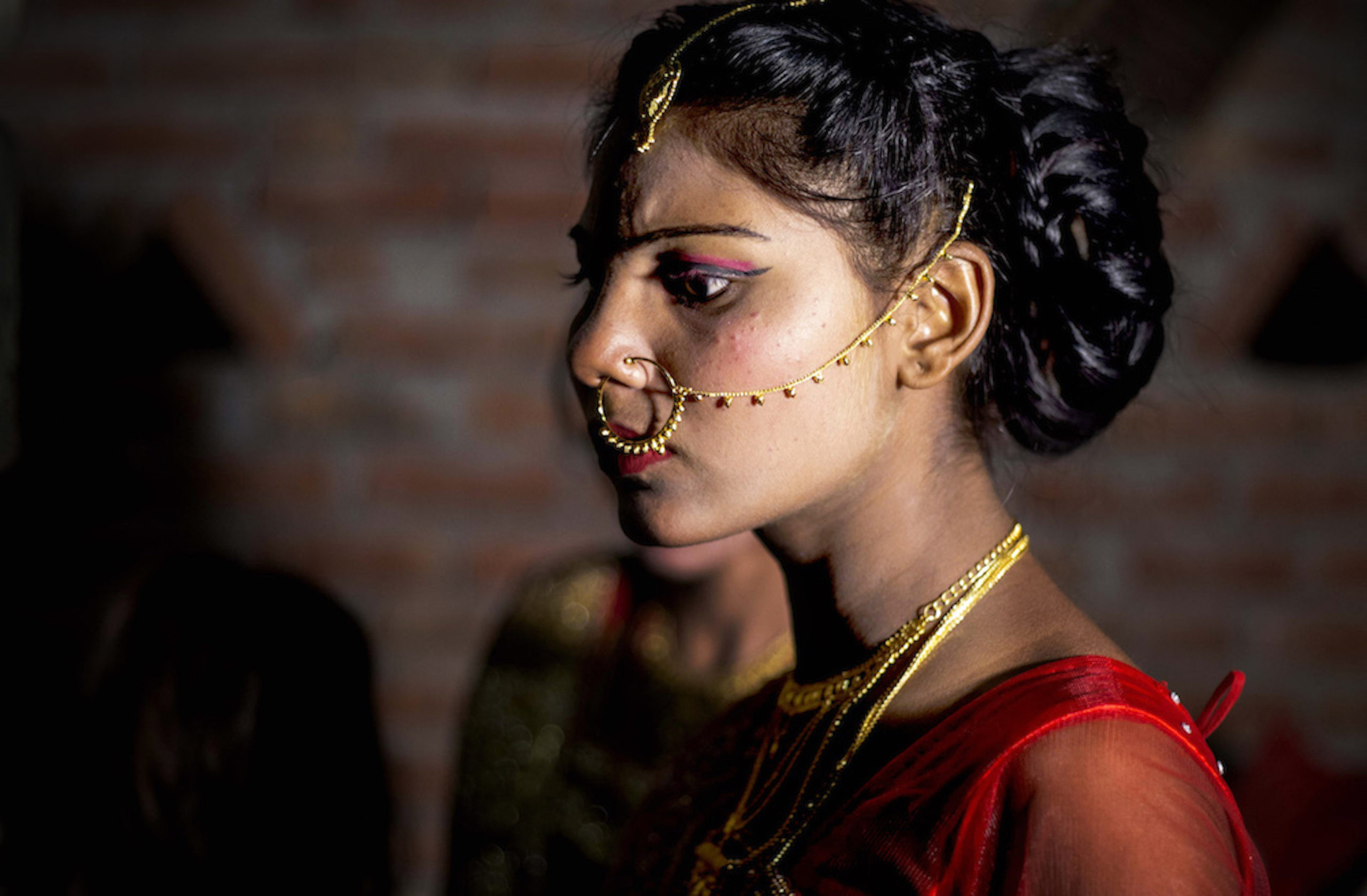
Petronella isn’t the only one standing on the side of those nobody listened to and trying to give them a voice. In Tiina Madisson’s first feature documentary The Beloved Daughter, the Finnish director delves deeper into a subject most would rather ignore: child marriage. Or rather, she accompanies a spirited 14-year-old girl, Rekha – soon set to marry in her Nepalese village, even though she would rather become an English teacher.
“Tiina knows this subject quite well – she already made a short about child marriage for the Finnish Broadcasting Company” – explains producer Kirsi Mattila of Icebreaker Productions, for whom The Beloved Daughter also marks a first step into feature-length films.
“For me, the most difficult thing about moving into features was financing. It was really hard!” – she says. “At first, we wanted to cover much broader ground – talk about women’s situation there, prostitution or even human trafficking. But when Tiina went to Nepal again in 2015, she met Rekha. And when she came back, she was sure: ‘I want to make it about her.’”
Mattila, who in 2015 directed Marzia, My Friend about an Afghan woman in her twenties, is no stranger to making films about subjects from beyond one’s own backyard, with half of her company’s output already dedicated to stories from developing countries. And she certainly understands the challenges that come with it.
“That film, Marzia, also said something about this difficulty with understanding other cultures, other than your own. It was a long learning process, at least for me” – she admits.
“It’s not easy to make a film about another culture, while also making sure that you don’t look down on it. How can you really go inside and understand these people? Usually living in very different conditions and in a very different society from everything you know? My way as a director was perhaps a bit different to Tiina’s – I wanted to make this dilemma a part of my film. I wanted to show how hard it could be.”
“Then again, Marzia was in her twenties, quite educated, but Rekha was of course very different, much younger – she wanted to become an English teacher without actually knowing much English. So Tiina’s way was to stay there, and she stayed there for a long time. Before, she travelled to Nepal to make Blood for the Goddess [documentary about the Gadhimai animal sacrifice festival] and that’s when she met her ‘fixer’. He was the one who told her about these child marriages, still taking place despite the official ban, and he was Rekha’s actual relative, which helped a lot I guess. This way, Rekha’s family accepted her too.”
And yet it’s precisely Rekha’s family, respectful of old traditions nobody seems to be able to break, that decides to marry her off at such young age. Even though, as Mattila mentions, child marriage is actually prohibited by law.
“I think that Tiina’s film shows that it’s not that simple, also for the people living in this society” – she says. “It’s hard to make different decisions from the ones made by people around you, it’s hard to stand out this way. The burden of the tradition can be really heavy and the process to change these customs is just painfully slow. In this village, Rekha’s father seems to understand that it’s a harmful tradition, or at least that ultimately it makes their own lives more difficult. But he is not a hero – he is not ready to change his society, he just follows its rules.” So are things changing at all?
“When we talked about Rekha, Tiina once said that she thinks she has given up. But we don’t know what will happen to her children. Somehow, Rekha already knows that there are other possibilities in life, other futures. Who knows? Maybe it could be the starting point for something new.”
What It Means To Be European
A starting point for something new, or a new take on something old – like Tonislav Hristov’s The Last of the Seagulls, about to take its first steps in front of the industry experts hunched, at least this time around, in front of their computers.
Dedicated to Ivan – a Bulgarian man romancing foreign ladies at a Black Sea resort, most of whom are of Russian and Ukrainian provenience these days, as they flock to buy cheap apartments and earn permission to stay in the EU. Which, political aspects aside, actually sounds like an idea for a reality show, I say.
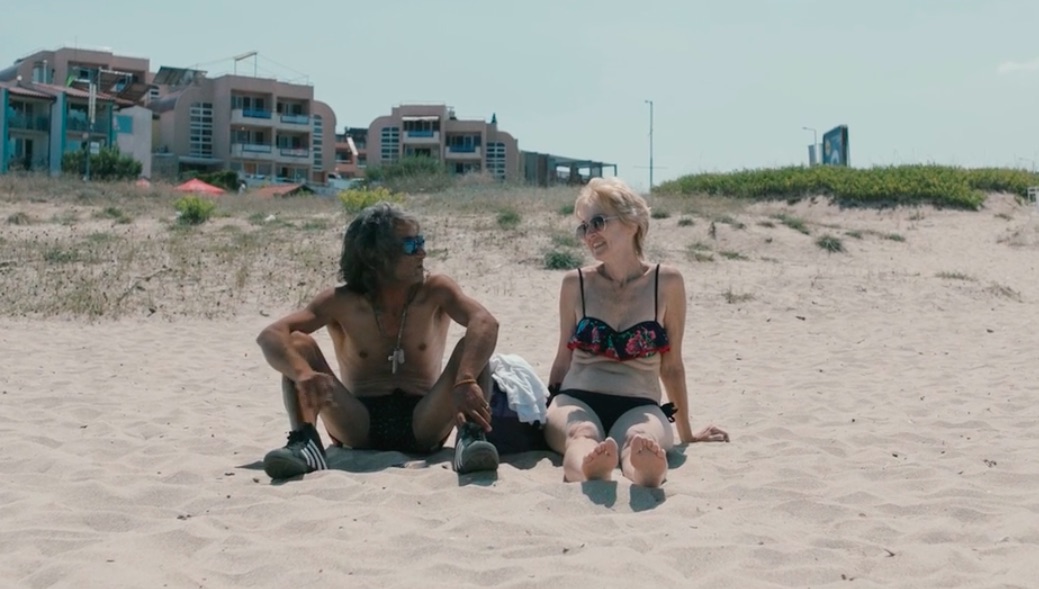
“Many of his films are like that” – laughs Hristov’s long-time producer, Kaarle Aho of Making Movies. We meet in Helsinki, traditionally enough. But no handshake’s allowed.
“In the beginning, it was just a general idea to do something about these tourist resorts and their seasonal workers. Have you seen Vitaly Manski’s Broadway. Black Sea? It was something similar, with no main character, no storyline – just some people driving taxis or waitressing in a bar. But then Toni talked to Ivan, who was already in [his previous film] The Good Postman, and he mentioned this whole gigolo business. It was as if a window opened up.”
The idea to start with one concept, only for it to then morph into something else surely sounds great, I say. But not for a producer.
“It is scary! Well, not anymore. It was at first” – agrees Aho. “It was the same with The Good Postman – you have this ‘funny’ idea and then it starts to grow, turns a bit political. Maybe it’s because Tonislav, like all of us, is getting a bit older now, as it wasn’t like that when we were making Rules of Single Life or Love & Engineering. Now, every time it just gets darker somehow, deeper.”
“With The Good Postman, he was talking about this strange village by the Turkish border and the Trumpian fence the government was planning to build. But it went somewhere in the end, so now it was easier to play along.” Also when deciding to come back to the same character.
“This is one of the most problematic things in documentary filmmaking and I guess that’s why Kieślowski stopped making them. I have seen people, especially younger, making this mistake, getting too close. You have to remember that you are benefitting from this situation. But I wasn’t worried about this man, Ivan. He has a more Zen approach to life than most of us Westerners. It’s all a question of trust.” One that he and Hristov have been developing for years, collaborating, but also becoming actual friends.
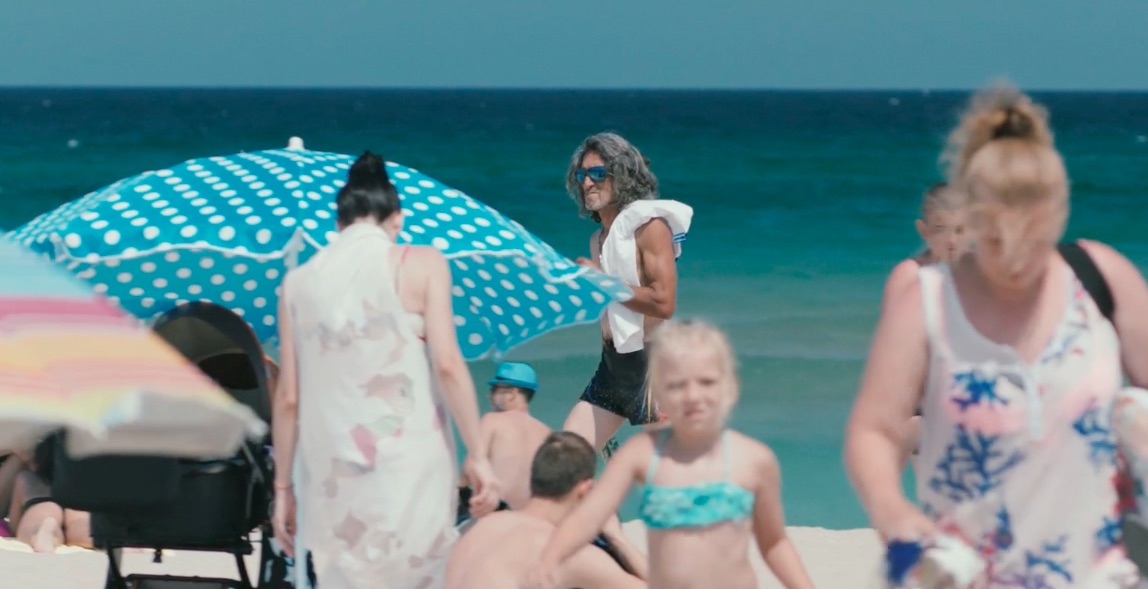
“It gets easier as you understand each other better, but it gets more difficult because you get annoyed in the same way you do when you are in a long-term relationship. You just hear this tone in somebody’s voice, thinking: ‘I know where this is going and it’s ridiculous!’ When Tonislav immigrated to Finland, he didn’t know many people in the business but now he would find plenty of other producers to work with. So if he needs me, it’s for something else.”
“To be honest, Kaarle is probably one of my best friends. It’s not a working relationship anymore – he is the godfather of my son, he’s family” – adds Hristov, on the phone from Bulgaria, where Sofia Film Festival has also just been postponed, I learnt.
“I have worked with him since film school, so it has been over 13 years. It’s like a marriage and I have never felt the need to have another partner, let’s put it like that.”
“With Ivan, my character, we also became good friends and it was then when I first noticed his many relationships with Russian or Ukrainian women. He told me that he used to be a ‘seagull’, which was a way to describe men from the countryside going to the beach in Bulgaria, trying to hook up with tourists. Many of them got married, but my friend is still trying to find love, 40 years later. He did have a wife when he was younger but then she left, went back to Ukraine with their son. I don’t know if he is really looking for a family, although he talks about it.” But to Hristov, who already shot some footage, his new film is about a gigolo only on the surface.
“When I was studying filmmaking, it was one of the lessons: first you make films about your own family and about who you are” – he says. “I don’t see it as another refugee film. I am interested in what it means to be European, this whole ‘coming to Europe’ dream and how it has changed since the Communism. It carries different values at the moment. At some point, the ‘seagulls’ were the hunters. Now, they are being hunted. This story might seem funny, but then it gets darker. I do enjoy lightness in films though, as long as it’s not some “ha-ha” comedy. I think it comes from my Eastern European side, but also Kaurismäki. There is this sarcastic humour, which welcomes you, saying: ‘Come see this film, it will be fun!’ And then it slaps you right in the face.”
***
Read more about CPH:DOX and its digital edition: https://en.cphdox.dk/
